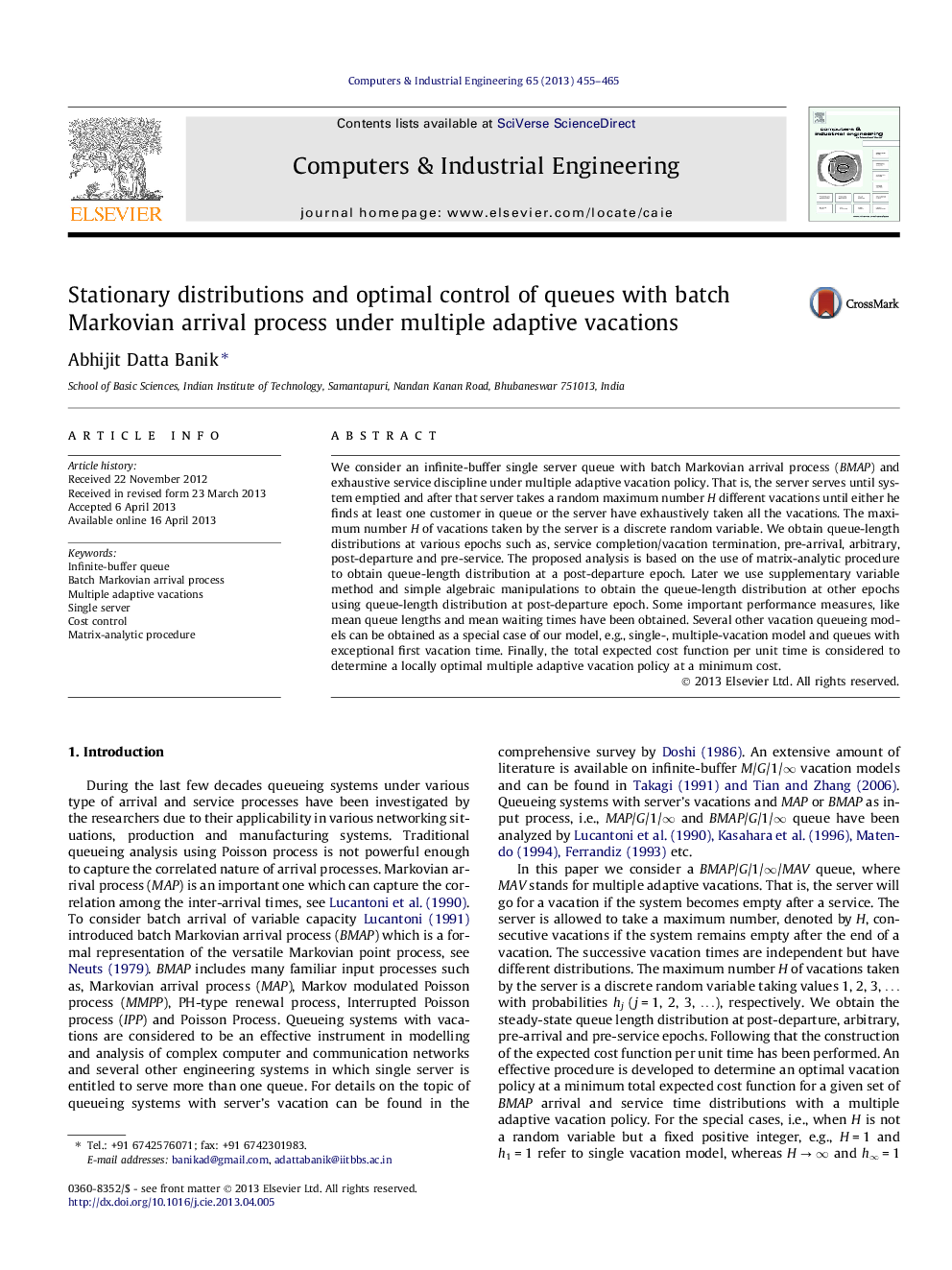| Article ID | Journal | Published Year | Pages | File Type |
|---|---|---|---|---|
| 1134478 | Computers & Industrial Engineering | 2013 | 11 Pages |
•We consider an infinite-buffer single-server queue with batch Markovian arrival process.•We consider multiple adaptive vacation policy.•Stationary distributions at different epochs and performance indices are obtained.•Analysis is supported by simple explanations and proofs of various results in this context.•An effective procedure is developed to determine an optimal vacation policy at a minimum cost.
We consider an infinite-buffer single server queue with batch Markovian arrival process (BMAP) and exhaustive service discipline under multiple adaptive vacation policy. That is, the server serves until system emptied and after that server takes a random maximum number H different vacations until either he finds at least one customer in queue or the server have exhaustively taken all the vacations. The maximum number H of vacations taken by the server is a discrete random variable. We obtain queue-length distributions at various epochs such as, service completion/vacation termination, pre-arrival, arbitrary, post-departure and pre-service. The proposed analysis is based on the use of matrix-analytic procedure to obtain queue-length distribution at a post-departure epoch. Later we use supplementary variable method and simple algebraic manipulations to obtain the queue-length distribution at other epochs using queue-length distribution at post-departure epoch. Some important performance measures, like mean queue lengths and mean waiting times have been obtained. Several other vacation queueing models can be obtained as a special case of our model, e.g., single-, multiple-vacation model and queues with exceptional first vacation time. Finally, the total expected cost function per unit time is considered to determine a locally optimal multiple adaptive vacation policy at a minimum cost.
